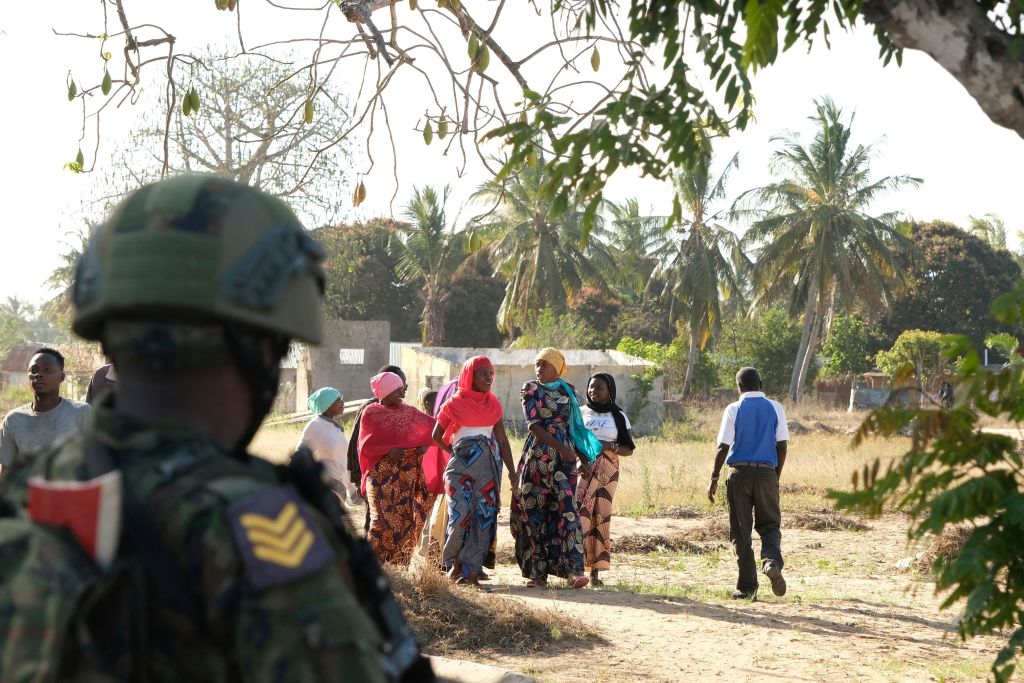ADF STAFF
Rwanda has pledged to send more troops to Mozambique’s embattled Cabo Delgado province where terrorists have unleashed a fresh wave of attacks in recent months after suffering military losses to international forces.
The Rwandan troops will arrive to help avoid a security gap as the Southern African Development Community (SADC) Mission in Mozambique (SAMIM) leaves the province.
In March, 300 rebel fighters reportedly seized and occupied the coastal town of Quissanga, a district capital. Insurgents beheaded three members of the security forces on nearby Quirimba Island the following day.
The new attacks have hit areas that were relatively untouched since the start of the insurgency, including a sustained push into the Chiúre district near Cabo Delgado’s southern border. These attacks are “notable for their relative intensity and the absence of an effective response from state forces,” Cabo Ligado, a website that monitors the insurgency, reported in March.
Brig. Gen. Patrick Karuretwa, who leads the Rwandan Defense Force’s international military cooperation, said the country already has about 2,500 Soldiers and Police personnel in Cabo Delgado’s Ancuabe, Mocimboa da Praia and Palma districts.
The SAMIM withdrawal “obliges us to take certain measures,” Karuretwa said in a report by the Mozambique Information Agency. “We shall train Mozambican soldiers to occupy the places where SAMIM used to be stationed. We are also increasing the number of our own forces, and making them more mobile, so that they can cover larger areas.”
Rwandan forces in 2021 recaptured the northern port of Mocimboa da Praia from insurgents who controlled the city for about a year, disrupting a major natural gas project.
About 300 troops from Tanzania, an SADC member, are expected to remain in Cabo Delgado under a separate bilateral security agreement, according to Zitamar News. Tanzanian forces are based in the Nangade district in northern Cabo Delgado.
SAMIM troops from Botswana, Lesotho and South Africa withdrew in early to mid-April. South Africa sent about 1,500 troops to Cabo Delgado, the most of any country. The Islamic State group-linked Ansar al-Sunna rebels have led an insurgency since 2017.
SAMIM comprises troops from Angola, Botswana, the Democratic Republic of Congo, Lesotho, Malawi, South Africa, Tanzania and Zambia. The mission has been in Cabo Delgado since 2021. In August 2023, the SADC approved an extension of its mandate for one year. The final SAMIM forces are expected to leave in July.
Mozambique Foreign Minister Veronica Macamo has said SAMIM is departing due to “financial problems.”
“We also have to take care of our own troops and we would have difficulty paying for SAMIM,” Macamo said in a defenceWeb report. “Our countries are not managing to raise the necessary money.”
The European Union has pledged $21.3 million to fund the next Rwandan deployment.
After meeting with Mozambican President Filipe Nyusi in March, Algerian President Abdelmadjid Tebboune also pledged to send basic personal equipment for members of Cabo Delgado’s local militias who fight alongside security forces.
SAMIM has helped make significant counterterrorism gains since its deployment and more than 600,000 people who fled violence in Cabo Delgado had returned to their homes as of December 2023, Relief Web reported.
Thomas Mandrup, associate professor at Stellenbosch University’s Security Institute for Governance and Leadership in Africa, said he believes the mission achieved its objective of reducing the insurgents’ capacity.
However, “SAMIM has found it difficult to fulfil its mandate of training the Mozambican force because they couldn’t identify their training needs,” Mandrup said in an interview with The Conversation. He added that the mission’s development and humanitarian efforts “have been limited at best.”

